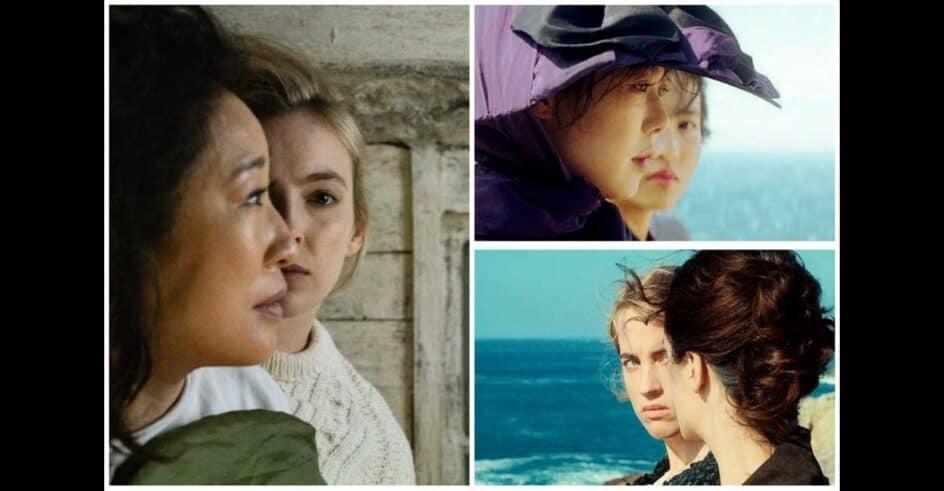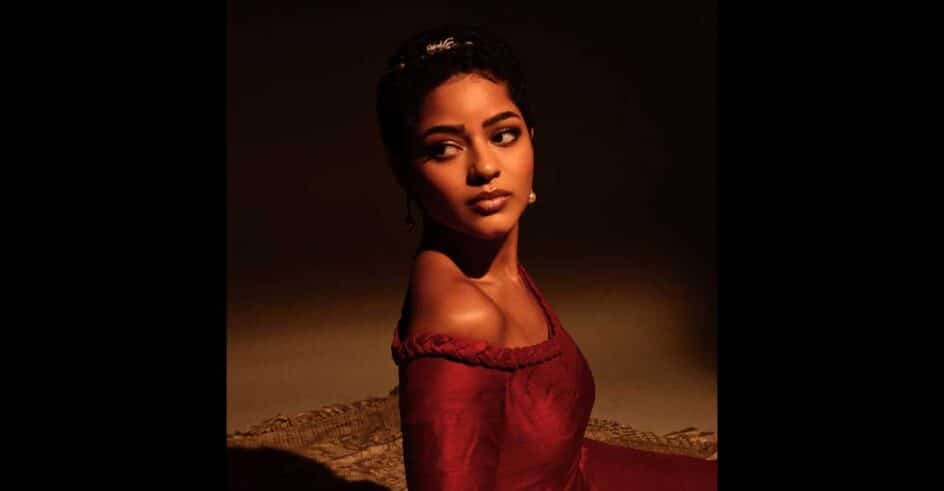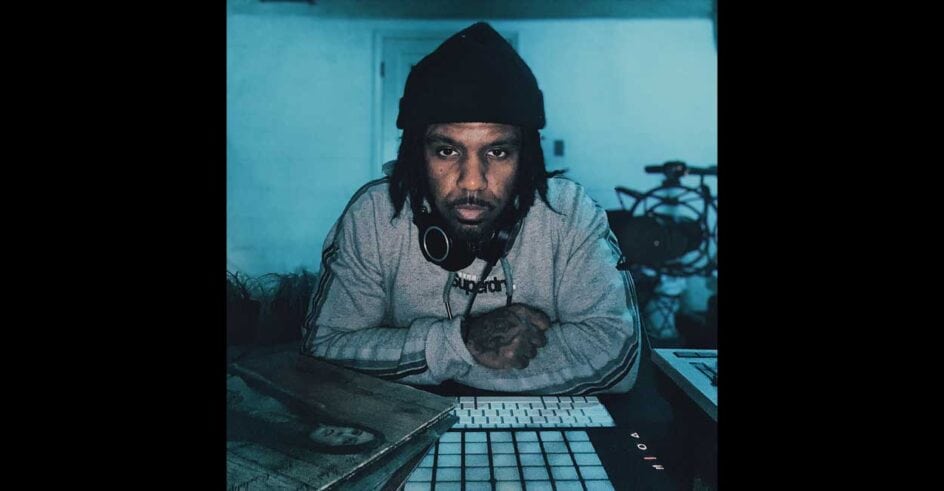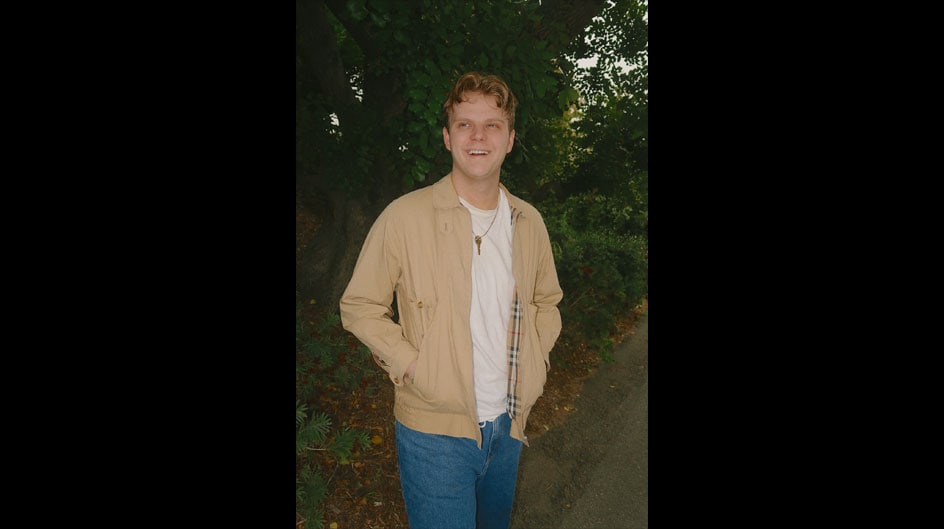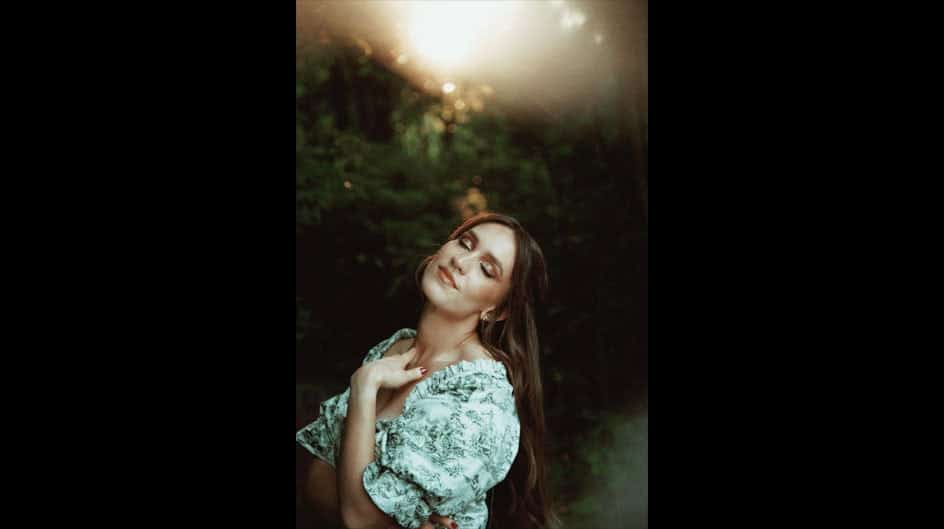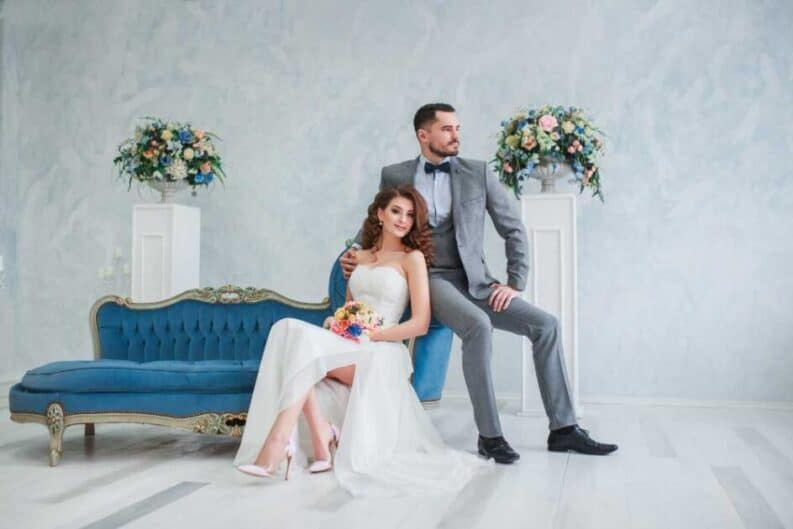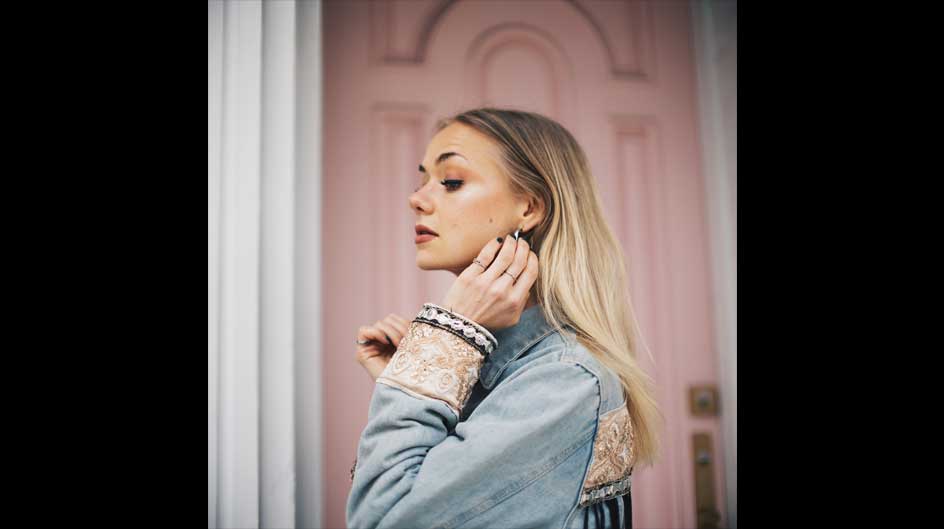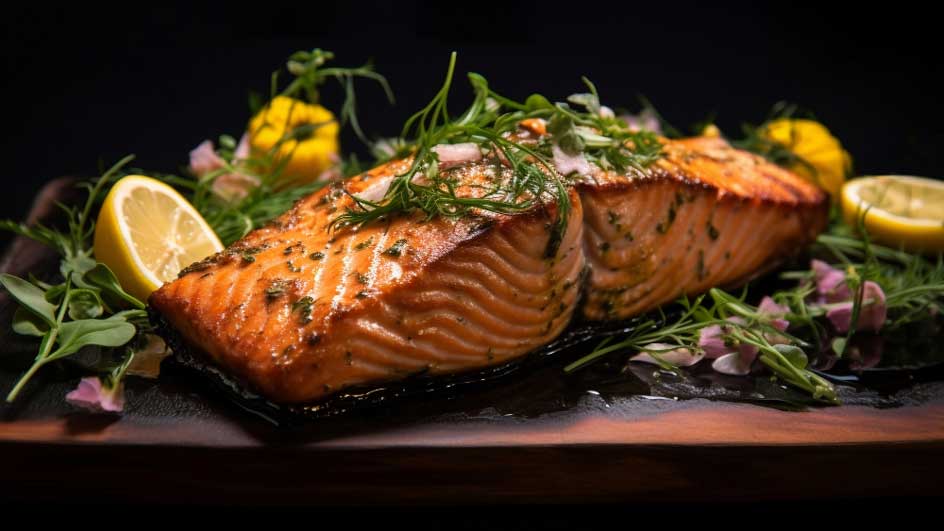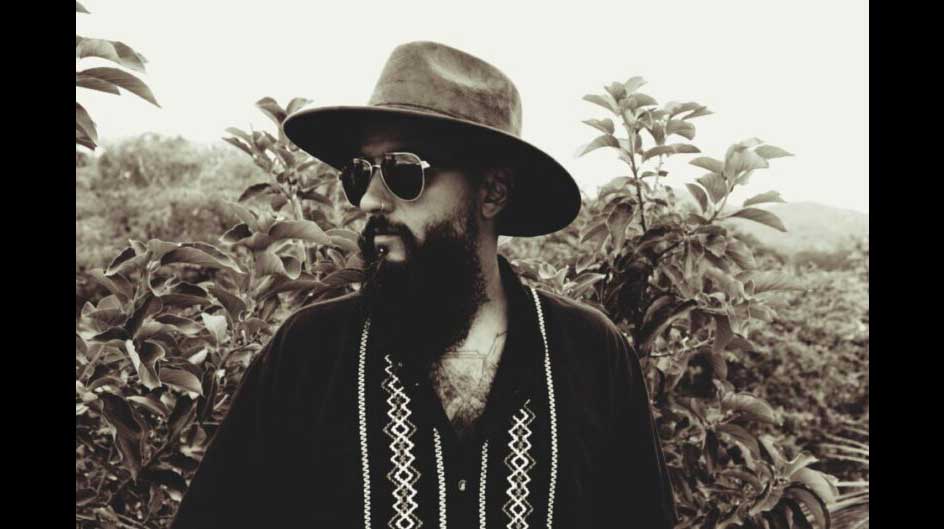Killing Eve can be understood as a reimagined story of the genesis of mankind. It begins with the Fall of Eve with Villanelle as the serpent tempting and luring her away from Paradise. But that is where the story subverts because Eve is no victim, she invites the disruption. So, she bites into the apple of desire (or more appropriately, twists the knife of desire drawing out the blood of lust). Their journey through Inferno is anything but linear. But the rules are clear, we are watching this unfold not from the moral confines of Paradise but as residents of this damned Inferno. And then these two are merely pawns playing by the rules of their world that revels in chaos.
Thus begins a portrait of obsession. Multiple people attempt to dissuade Eve and bring her back to Paradise but to no avail. “She’s a parasite, Eve”, Konstantin warns Eve early on, “She gets into your brain. She eats you up to make space for herself.” The Hungry Caterpillar is a story of consumption, of a desire that can never be satiated. A state of limbo where the only thing constant is a persistent need and every bread crumb of satisfaction only leads one further into the darkness and erases the path left behind.
“She’ll love you to Death,” echoes his final warning. Eve chooses to be consumed. It accords her an agency that makes this chase transgressive. She takes the lipstick out of her purse and slowly applies it even as it pricks. She is both the apple and the mouth; the object and the desire. There is voyeurism attached to it which is explicitly stated when Hugo asks out of curiosity, “What is it? Do you like watching her or do you like being watched?” to which Eve replies, “Both”.
But the hungry caterpillar becomes a butterfly in the end. Through the metamorphosis, the butterfly emerges from the cocoon and the obsession turns into something more consuming; Love. Let this be a reminder that this is not a love story but an Epic. While obsession drives them to the destruction of The Other, it is love that demands the annihilation of The Self; for it begets vulnerability. And after countless chess moves spent in gaining control and power over the other, it is vulnerability that is the ultimate price to pay in order to achieve true intimacy. The tied therapist informs Villanelle, “In healthy relationships, you have to make yourself vulnerable too, allow someone else to have that sort of power over you.” And by that point Villanelle knows that “Eve does”. The kind that can turn your world upside down, bend you to your knees and skin yourself raw.
Violence had been embedded into their relationship from the onset. It became their refuge, a way to communicate. The very first time they interact upon learning one another’s identities, Villanelle presses a kiss to her gun and aims it at Eve, and something new is born. This is her expression of her attraction and obsession. Henceforth, they have carved out a language of love, one that was only spoken by the two of them. It harks back to Celine Sciamma’s ‘Portrait of a Lady on Fire’ where the Lover proclaims, “Do all lovers feel like they’re inventing something?”
“A relationship is about inventing your own language,” says Sciamma. “You’ve got the jokes, you’ve got the songs, you have this anecdote that’s going to make you laugh three years later. It’s this language that you build. That’s what you mourn for when you’re losing someone you love. This language you’re not going to speak with anybody else.”
And this unique language of violence and gore is an unspoken understanding between Eve and Villanelle as showcased by the scars they have marked on each other’s bodies. “A part of her is inside him.” For the straight couple, it was their kidney transplant scars that bonded them and we are thus reminded of the physical manifestation of the inseparable bond that connects our protagonists. There is no comparison as they each spoke their own language.
During their arcs in Seasons 1 and 2, they come across one another like ships in the night, always passing but never meeting; resulting in a stab in the gut and a shot in the back, a familiar language but an unresolved conversation. On the other hand, their arcs in seasons 3 and 4 are about them embarking on individual journeys of an attempted metamorphosis.
Villanelle chooses the ‘Light’ of seeking refuge in religion which ends how it started; in the remorseless killing. It was never sincere, to begin with and became another vanity project exemplified through her very literal God complex. However, the attempt in itself proves that she was not the same cold-blooded assassin as she once was. Meanwhile, Eve forays further into the ‘Darkness’. But her transformation is not complete either. She takes on the Sisyphean task of lifting the boulder of The Twelve but her facade of bravado and apathy quickly unmasks and she falls back to her impulsivity. She is still bumbling around accomplishing tasks by being reckless and relentless in equal measure.
Despite the failure, it is not a futile attempt. They come across their shadow selves; Helene for Eve and Gunn for Villanelle. Helene represents the danger, power and sexuality of a new life that Eve chased with Villanelle. Whereas Gunn represents the freedom, domesticity and acceptance that Villanelle was seeking with Eve (remember Alaska?). But once they got a taste of what that world would look like, neither of them actually enjoyed it. Because it did not provide the intimacy and belongingness that they find with each other; a realization that perhaps it was never about the fantasy but the person. The ends of their respective shadow selves signified their journey coming to fruition, reconciliation with their humanity. Having strayed off to the far ends of where they started out, they finally found a balance with each other.
Despite their doom, these are not star-crossed lovers. Perhaps fate brought them together, in that ordinary hospital bathroom, but every moment since then has been a choice; to watch or be watched, to injure or soothe, to possess or love. The more forgettable stock of Eve-Male-Companion, Jaime offers sage advice, “Choices Eve, it’s all about choices.” And the more recent, Yusuf, “Moving on, no matter how difficult, that is always a choice. Whatever you do next, you can choose.”
So, was the ending really transgressive? It would be fitting to give a story imbued with violence at every step to meet a similar end of doom and demise. However, tragedy was never woven into the fabric of their relationship because death was not always equated with loss but often a vindication; the catharsis of seeing imperfect women live out their darkest desires without having to repress or morally conform. “You will never understand how much harder it is to be nice and normal than to be like you,” Eve sneers at Villanelle but it mostly to herself.
Mirroring the mythical tale of Cupid and Psyche, Eve and Villanelle’s entire progression was focused on them going through an epic journey of desire, denial, destruction and ultimately sacrifice, to reach a place of acceptance where they actually feel comfortable with each other. And then they do. “What for?” Eve rightly questions. Perhaps it would have ended too soon and they would have ‘consumed each other before they got old’ but it would only do justice to the characters if they are at the very least according to a possibility of a future, be it triumphant or catastrophic, but something of their own choosing.
What started as a subverted Creation of Adam ends in the destruction of Eve. She loses the serpent but pays the ultimate price; her own Self. This was never meant to be a cautionary tale of what happens to those who deviate too far away from the light of ‘normalcy’, but a glorious celebration of desire, yearning and self-fulfilment that is ‘queer’.
That being said, has the ending ruined my whole experience of the show? Absolutely not. Storytelling at its essence allows the viewers to make it their own, to compose their own narratives. It’s not merely watching people on a screen going about their lives, but vicariously living through them offers a chance to experience insurmountable lives within this one lifespan. Such is the power of fictional characters that it transcends even its creators.
And what Killing Eve offers is a uniquely queer and feminine gaze. It is telling that the very first description of the enigmatic assassin is given by the agent trying to catch her, “She has very delicate features. Her lips are full, she has a long neck and high cheekbones. Her skin is smooth and bright. She had a lost look in her eye, that was both direct and also chilling.” It is a gaze that is sensual and chaste, powerful and submissive, blunt and elusive; one that refuses to be tied up in binaries. It is nuanced and ever-changing in a quest for the discovery of a shared human experience as it balances the power structure for those who lay outside those very binaries of society.
One of the most profound moments for me was the scene where Eve and Villanelle are juxtaposed, each staring at the mirror. Villanelle, so overwhelmed by sentiments tears flow out of her eyes. Briefly followed by a smile and with it comes an admission of something new. ‘I feel things when I’m with you, she later admits. This invitation to see a glimpse of the rawness allows me as a viewer to in turn be seen and ‘feel things’ too. This attachment progresses as they progress toward one another. And isn’t that the ultimate goal of storytelling, to be able to invoke emotions out of fantasy worlds? A connection, a true intimacy.
